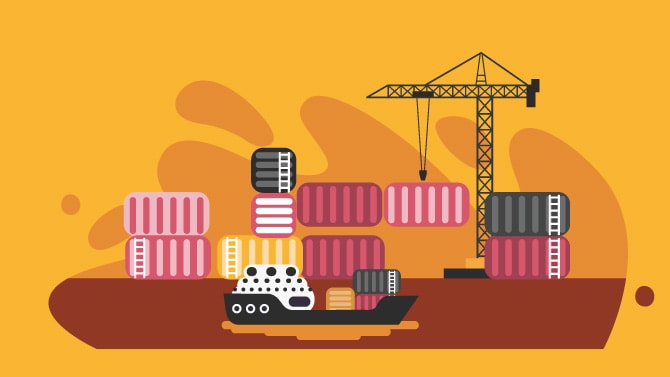
Tonnage tax regime tightened per 1 January 2020
20/12/19
At the discretion of the European Commission, the Dutch tonnage tax regime will be tightened as per 1 January 2020. If a vessel is put into service after 1 January 2020, at least one vessel in the fleet must fly an EU/EEA flag. For ship managers, a flag requirement will be introduced as well. There will be a transitional arrangement for tonnage-situations existing on 31 December 2019. In addition, a limit will be introduced for time or voyage chartered vessels that do not fly an EU/EEA flag. The latest tightening of the regime is the introduction of a profit cap for non-transport activities of up to 50% of the annual profit (e.g. relevant for cruise ships).
The 2020 Tax Package (including the tightening of the tonnage tax regime) and the legislative proposals ATAD2 and DAC6, including some measures for 2021 were adopted by the Senate on 17 December 2019.

Background
Since 2009, the Dutch tonnage tax regime has been broadened in various areas. These additions have been approved by the European Commission for a period of 10 years. The European Commission extended this approval for another period of 10 years on the condition that the Dutch tonnage tax regime would be tightened.
Time or travel charter
If a taxpayer owns a vessel or hires a vessel on the basis of a bareboat charter, profits derived from vessels hired (additionally) on the basis of a time or travel charter also qualify for the tonnage tax regime. Such vessels are not required to fly an EU/EEA flag.
After 1 January 2020, there will be a limit for vessels that are hired on the basis of a time or voyage charter and that do not have an EU/EEA flag. Thus, this adjustment does not affect vessels chartered on a time charter basis.
After 1 January 2020, the annual total of net daily allowances in tonnages for time chartered or voyage chartered vessels that do not fly the EU/EEA flag, may not exceed 75% of the annual total of net daily allowances of all the subject's vessels that fall in the scope of the tonnage tax regime.
Flag Requirement
Self-owned vessels
The starting point of the tonnage tax regime is that vessels must fly an EU/EEA flag. There are, however, three exceptions to this. On this basis, it may happen that a taxpayer applies the tonnage tax regime when no vessel is flying an EU/EEA flag.
From 1 January 2020, when a new vessel is brought into service, the taxable person's fleet will have to include at least one vessel flying an EU/EEA flag. This rule may affect taxpayers who started applying the tonnage tax regime in a year in which there was no flag requirement under ministerial regulation (before the year of 2015).
Ship managers
Ship managers who carry out the complete management of crew and technique for a vessel owned by another person are also subject to the tonnage regime. It is not required that these vessels fly an EU/EEA flag. From 1 January 2020, vessels managed by ship managers will also have to comply with the flag requirement.
Transitional arrangement
A transitional arrangement will be made for vessels already owned or managed by the taxpayer before 31 December 2019. On this basis, existing cases are not (yet) affected and the adjustment shall only take effect when a new vessel is put into service or managed as from 1 January 2020.
Profit-cap for non-transport activities
Profits derived from the transport of persons or goods in international maritime traffic are eligible for the tonnage tax regime. Within this category, it is not necessary to make a distinction between profits derived from transport activities and non-transport activities. Non-transport activities may include, for example, entertainment services (wellness activities or a beauty salon) that are offered on cruise ships.
For dredgers, a split between profits from transport activities and non-transport activities already applies.
From 1 January 2020, there will be a profit cap for non-transport activities of up to 50% of the total annual profit made from the exploitation of the vessel.
The profit must be split between transport activities (applicable to tonnage tax regime) and non-transport activities (applicable to regular profit regime) if the profit from non-transport activities exceeds the profit cap.
What does this mean for your company?
Are you currently using the tonnage tax regime? Then we advise you to check in the short term whether the tightening of the regime will have consequences for your company too.
Contact your advisor, Erwin van den Bree or Julian Marelis, to map out the specific consequences for your company.




















